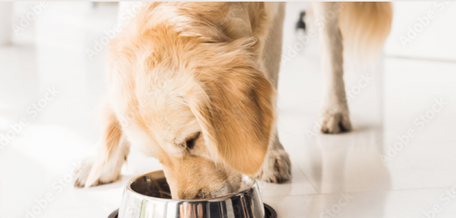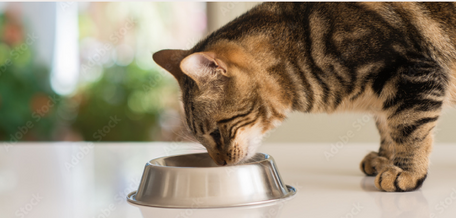Choosing the right cat food is important for cats with kidney disease. This article will help you understand what to look for when selecting the best cat food that supports kidney health.
Key Takeaways
-
Look for the best cat food with low phosphorus levels to help manage kidney disease.
-
Choose high-quality protein sources like chicken or turkey, which are easier on the kidneys.
-
High moisture content in food is essential for keeping your cat hydrated.
-
Avoid high-sodium foods; natural ingredients are best for kidney health.
-
Consider BJ’s Raw Pet Food options for balanced diets that may support kidney function.

Introduction
Kidney disease is a common issue in cats, especially as they get older. Choosing the right diet is crucial to support their health and manage their symptoms effectively. A proper diet can help maintain kidney function and improve the quality of life for cats facing this challenge.
In this article, we will explore what to look for in the best cat food for those with kidney disease. Key factors include:
-
Low-phosphorus content to reduce strain on the kidneys.
-
High-moisture options to ensure proper hydration.
-
High-quality protein sources that are gentle on the kidneys.
By understanding these essential dietary needs, you can make informed choices that will benefit your feline friend.
1. Importance of Diet for Cats with Kidney Disease
Diet plays a vital role in managing kidney disease in cats. The right food can help slow down the progression of the disease and improve your cat's overall health. A well-balanced diet can help manage symptoms and support kidney function. Here are some key points to consider:
-
Limit Phosphorus: High phosphorus levels can worsen kidney disease. Choosing food with lower phosphorus content is essential for cats with kidney issues.
-
Quality Protein: Cats need protein, but it should come from high-quality sources. Proteins like chicken and rabbit are easier on the kidneys and help maintain muscle mass.
-
Hydration: Cats with kidney disease often need extra hydration. Foods with high moisture content can help keep them hydrated and support kidney function.
Key Nutritional Needs:
When selecting the best cat food for your feline friend with kidney disease, focus on these nutritional needs:
-
Low Phosphorus: Helps slow the progression of kidney disease.
-
High-Quality Protein: Supports muscle maintenance without overloading the kidneys.
-
Moisture-Rich Foods: Aids in hydration and kidney health.
A tailored diet can significantly improve the quality of life for cats with kidney disease. It’s important to consult with your veterinarian to find the best options for your pet.
2. Low-Phosphorus Content
Cats with kidney disease need special care when it comes to their diet. High phosphorus levels can worsen kidney problems, so it’s important to choose foods that are low in phosphorus. Ideally, you want cat food with phosphorus levels as close to 0.5% as possible. This helps reduce the strain on their kidneys and can improve their overall health.
BJ's Raw Pet Food offers great options for cats. Their products are made with balanced, natural ingredients. Here are some of the benefits of choosing BJ's Raw Pet Food:
-
Natural Ingredients: Made without artificial additives.
-
Variety of Proteins: Options like chicken and rabbit that are gentle on the kidneys.
Choosing the right food can make a big difference in your cat's health. Look for options that are low in phosphorus to help manage their kidney disease effectively. For cats with special dietary needs, it’s important to work with a veterinarian to find the right balance, as they can help guide your choices to support kidney health
3. High-Quality Protein Sources

When it comes to feeding cats with kidney disease, high-quality protein sources are essential. These proteins are easier for cats to digest and put less strain on their kidneys. Some of the best options include:
-
Chicken: A lean protein that is beneficial for overall health.
-
Rabbit: Known for being gentle on the stomach, making it ideal for sensitive cats.
-
Turkey: Another excellent source of protein that is easy to digest.
These proteins help maintain muscle mass and support overall health without overwhelming the kidneys.
For those looking for great options, BJ’s offers:
-
BJ’s Rabbit Blend: A nutritious choice that is easy on the kidneys.
-
BJ’s Chicken and Organ Mix: Packed with high-quality protein.
Choosing the right protein can make a significant difference in your cat's health. Opting for high-quality sources helps ensure they get the nutrients they need without adding extra stress to their kidneys.
4. High Moisture Content for Hydration
Cats are naturally inclined to consume moisture through their food. High-moisture diets are especially beneficial for cats with kidney issues, as they help prevent dehydration and support overall kidney function. Here are some key points to consider:
-
Hydration Needs: Cats with kidney disease often require more water to help their kidneys function properly.
-
Food Options: Fresh or raw diets typically contain higher moisture levels compared to dry kibble, making them a better choice for hydration.
-
Supplementing with Liquids: Adding hydrating options like BJ’s Raw Goat Milk can enhance moisture intake and provide additional nutrients.
|
Food Type |
Moisture Content |
Benefits |
|---|---|---|
|
Dry Food |
8-10% |
Less hydration, may require more water intake |
|
Canned Food |
75-80% |
High moisture, supports hydration |
|
Fresh Food |
70-90% |
Excellent hydration, tailored nutrition |
Maintaining proper hydration is crucial for cats with kidney disease. A well-hydrated cat is more likely to have better kidney function and overall health.
In conclusion, ensuring your cat has access to high-moisture food is vital for their health, especially if they are dealing with kidney disease. Consider incorporating wet or fresh food options into their diet to help keep them hydrated and healthy.
5. Low Sodium and Natural Ingredients

When it comes to feeding cats with kidney disease, low sodium is essential. High levels of salt can put extra strain on the kidneys, making it harder for them to function properly. Choosing cat food that is low in sodium helps to manage blood pressure and reduces the risk of further kidney damage.
Key Points to Consider:
-
Natural Ingredients: Look for foods that contain natural ingredients without artificial additives. This ensures that your cat is getting the best nutrition without harmful chemicals.
-
Avoid Processed Foods: Processed foods often contain high levels of sodium and preservatives that can be detrimental to your cat's health.
-
Read Labels Carefully: Always check the ingredient list and nutritional information to ensure the food meets your cat's dietary needs.
|
Nutritional Aspect |
Recommended Level |
|---|---|
|
Sodium |
< 0.3% |
|
Phosphorus |
< 0.5% |
|
Protein |
High-quality |
Choosing the right food can make a significant difference in your cat's health. Opting for natural, low-sodium options can help support their kidney function and overall well-being.
BJ’s Raw Pet Food offers a variety of options that are made with natural ingredients. Their products are designed to be safe and healthy for cats ensuring your furry friend gets the best care possible. For cats with special dietary needs, it’s important to work with a veterinarian to find the right balance, as they can help guide your choices to support kidney health
Final Thoughts on Choosing the Best Cat Food for Kidney Disease
In summary, choosing the right cat food for cats with kidney disease is essential for their health and well-being. Look for foods that are low in phosphorus, high in quality protein, and rich in moisture. These factors can help support kidney function and improve your cat's quality of life. Here are the key points to remember:
-
Low Phosphorus: High phosphorus levels can worsen kidney disease, so opt for low-phosphorus options.
-
High-Quality Protein: Select easily digestible proteins like chicken, rabbit, and turkey to reduce kidney strain.
-
High Moisture Content: Foods with high moisture content, such as fresh or raw diets, help keep your cat hydrated.
-
Low Sodium: Avoid high-sodium foods to prevent aggravating kidney issues.
Remember, the right diet can make a significant difference in managing kidney disease in cats. Always consult with your veterinarian to find the best options for your furry friend.
By exploring BJ’s Raw Pet Food products, you can find natural options that support your cat's overall health and enhance their quality of life.
BJ’s Raw Pet Food offers a variety of choices ensuring your cat receives the best care possible.
In conclusion, giving your pet the best nutrition is essential for their health and happiness. By choosing raw dog food, you can ensure they receive a diet that mirrors their natural needs. Don’t wait any longer—visit our website today to discover how you can be your cat's hero!
Frequently Asked Questions
What food should I give my cat if they have kidney disease?
For cats with kidney disease, it's best to choose food that has controlled protein levels, low phosphorus, and low sodium. Foods rich in B vitamins and omega-3 fatty acids can help improve their health. Wet food is a good option since it provides extra hydration.
How can I help my cat with kidney disease?
To support your cat with kidney disease, focus on feeding them a diet that is low in phosphorus and sodium, and high in quality protein. Keeping them hydrated is also very important, so wet food can be beneficial.
Is prescription food necessary for cats with kidney disease?
While prescription food is often recommended because it meets specific dietary needs for kidney disease, there are non-prescription options that can also be suitable. Always consult your vet to find the best choice for your cat.
Can I make homemade food for my cat with kidney disease?
Yes, you can prepare homemade food for your cat with kidney disease, but it's crucial to work with a vet or a pet nutritionist to ensure it meets their dietary needs.
What signs should I look for if I think my cat has kidney disease?
Common signs of kidney disease in cats include increased thirst, urinating more often, weight loss, and a decrease in appetite. Regular vet check-ups can help catch these issues early.
How often should I feed my cat with kidney disease?
Feeding frequency can vary based on your cat's needs and preferences. It's generally good to offer smaller, more frequent meals to help maintain their energy levels and hydration.




















